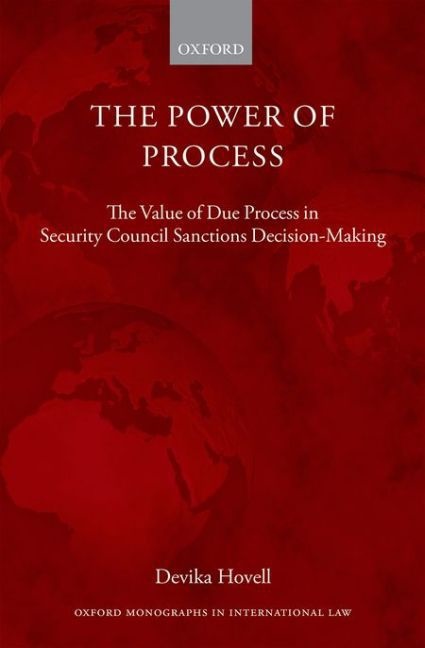Read more
Zusatztext The book, written in an accessible style, demonstrates the continuing relevance of the rule of law and the importance of further thought about its role in the UN context. It is a valuable tool for further discussion and research, and will be of interest to academics, government lawyers, diplomats, think tanks, NGOs, journalists, students and all others with an interest in the UN Security Council, UN sanctions and claims against the UN generally. Informationen zum Autor Devika Hovell is an Assistant Professor in Public International Law at the London School of Economics. She holds a doctorate from the University of Oxford and a Master of Laws from New York University, where she was awarded the George Colin Award. Devika graduated from the University of Western Australia with a Bachelor of Arts and a Bachelor of Laws with First Class Honours. She served as an Associate to Justice Kenneth Hayne at the High Court of Australia, and as judicial clerk at the International Court of Justice in the Hague. Klappentext Examining the legal principles behind UN Security Council sanctions, this book questions whether due process is afforded to sanctioned individuals in the context of the politics and crises that form the heart of Security Council decision-making. Zusammenfassung The UN Security Council's transition to 'targeted sanctions' in the 1990s marked a revolutionary shift in the locus of the Council's decision-making from states to individuals. The establishment of the targeted sanctions regime, should be regarded as more than a shift in policy and invites attention to an emerging tier of international governance. This book examines the need to develop a due process framework having regard to the uniquely political and crisis-based context in which the Security Council operates. Drawing on Anglo-American jurisprudence, this book develops procedural principles for the international institutional context using a value-based approach as an alternative to the formalistic approach taken in the literature to date. In doing so, it is recognized that due process is more than a set of discrete legal standards, but is a touchstone for the way the international legal order conceives of far larger questions about community, law and values. Inhaltsverzeichnis 1.: Introduction 2.: The Case for Procedural Reform: Due Process as Court Process 3.: The 'Source-Based' Approach to Procedural Reform: Methodology, Myths and Misconceptions 4.: A 'Value-Based' Approach: Three Models of Due Process 5.: A Model Based on Accuracy: The Instrumentalist Model in the UN Sanctions Context 6.: A Model Based on Interest Respresenation: The Dignitarian Model in the UN Sanctions Context 7.: A Model Based on Public Accountability: The Public Interest Model in the UN Sanctions Context 8.: Conclusion ...

